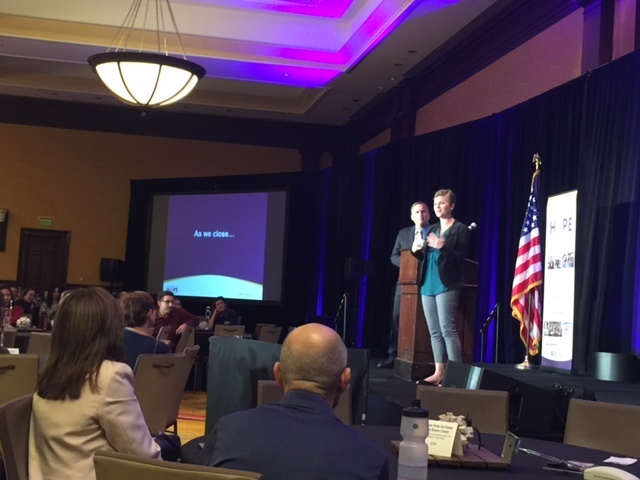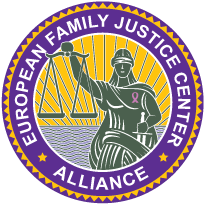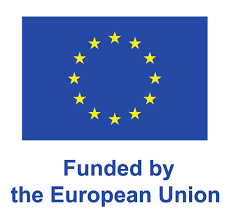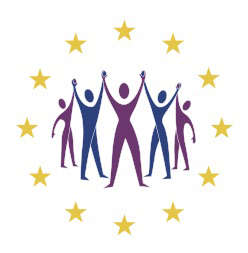Thursday 26th of April, Fort Worth
Blog Monday 23th of April Blog Tuesday 24th of April Blog Wednesday 25th of April
What happened today @

“I just keep saying: this is the right thing to do”
“Everything we do is relationship based”
The last day of the conference started with the 7-track workshops.
Understanding the relationship between mental health and trauma
In the track “trauma informed advocacy” Mayumi Okuda Benavides, psychiatrist at the Columbia University in Bogota and Uju Berry, child and adolescent psychiatry fellow from New York, gave an insight on the growing recognition of the impact of intimate partner violence and its consequences on mental health. Unless this recognition, many survivors of violence report their mental health needs are not being addressed.
Research shows that mental issues are quiet often among survivors of partner violence: 44% PTSD, 46% MDD, 31% anxiety, 10% substance abuse, 40% prior SA.
Barriers to psychiatric care are language, undocumented status, insurance, travel time, expense, child care, stigma, fear of social service, education, understanding, lack of trauma informed care.
As response a programme is being developed that integrates psychiatric and psychological care into the FJCs. The program is being enrolled in the New York FJCs.
The co-location of the FJCs already meets a range of the needs of the survivors in this range, from practical issues (such as travel time, expenses, status etc.) to psychological problems (stigma, trauma informed care, tress hold…).
Besides the integration of mental healthcare services in the FJC, training of the FJC staff in trauma informed care and knowledge about mental health problems and approach are developed. This is fruitful to improve referrals to mental health care where needed. Many FJCs offer counseling, but a range of survivors need therapy, so well-managed referral is important.
The program was prepared based on the needs expressed by survivors, during focus groups.
Money coming out of the Wazoo
Jennifer DeCarli, assistant commissioners at the Mayor’s office for the 5 FJCs in New York and Mary Claire Landry, director of the FJC New Orleans, took us on their journey in fundraising for the FJCs.
Marie Claire Landry, FJC New Orleans:
Private foundations are a core peace of what the FJC New Orleans wins every year: foundations of corporate businesses, foundations of women’s alliances and service clubs, private sponsorships, …
Relationships, relationships, relationships, … it’s all about relationships.
Involvement in fundraising activities takes a lot of staff: we are from New Orleans and we know how to throw a party. The FJC combines their parties with other organisations: local festivities, races, dance parties, … Do it one year and see if it’s worth it to get more involved in the future.
The most beneficial actions are the ones you have the least to do, because otherwise it takes a lot of your staff and it’s really hands on.
The FJC has a staff member for fundraising.
To get to an integrated collaboration model, you have to work together with your partners. Otherwise you are just sitting in one building without being an integrated team. You have to discus with your partner organisations: what are the gaps, how can we fill this in, who takes what into account, …
Pro’s and Cons of fundraising:
Pro:
- Can provide excellent marketing and community visibility
Establish positive support from community organizations and corporations
- Most beneficial are those that are totally put on by the organization with little involvement from the receiving agency
- Demonstrate community support from a variety of constituents
- Peer-to-peer fundraising opportunities that increase organizations network and community reach
Contra:
- If agency puts on the event, can be staff intensive, costly, and significant coordination, planning and resources
- Sometimes events can cost more than they make
- Competing with lots of other fundraisers in the community
- Will require some fundraising event competence on your staff
Susan Stewart, FJC Tulsa:
The FJC is located in Oklahoma City and besides the city it’s a very rural region. About 1/3 of the center is granted by the government (federal and local), 2/3 is by private funding and philanthropy. Note: the center hasn’t to pay a rent, as the building is from the local authority (besides the funding here described).
Tulsa has a real philanthropic community.
The Center hasn’t a staff member specific for fundraising.
Pro and Cons of governmental grants:
Pro:
- Normally 3 years of “safe” income to fund program delivery or research
- Data collection process and reporting is useful in measuring outcomes
- Sometimes continuation allows expansion of the program
Contra:
- Affected by political climate, either in a good way of bad way
- Usually not sustainable over the long haul… government expects to “seed” a program, but for PS to sustain. You have to prove before that you can sustain after the grant.
- Application/reporting requirements are long and complicated. It takes a lot of effort, struggling with digital systems.
- Sometimes it takes long time before the pay the grant, the funds don’t always come in when supposed to. You need a lot of cash of credit line to cover in advance.
Important funds are grant funds. Writing application of grants is a beneficiary task.
The center doesn’t do fundraising in local and social events because this puts the FJC in competition of our partner organisations.
if our partners apply for grants or funding: we will support them and work along, and we get a small piece of the grant. If we are going for a grant, we involve our partners and they get a small piece of the grant. You have to sit down with your partners and talk about how to strengthen each other.
The center is starting in fundraising: getting young people involved in social welfare and social fundraising is important.
Everything we do is relationship based and trust based.
Jennifer DeCarly, 5 New York FJCs (Brooks, Queens, Brooklyn, Manhattan, Long Island)
The 5 New York FJCs are supported by the Mayor’s Office: center operations, administrative support, personnel staff, security staff, IT support, rent of the centers, ... are provided by New York City.
Funding:
- City funding through city tax levy dollars going towards FJC
- Federal grant funding
- Private and public partnerships for FJC enhancements
- City contracts for crime victim services and legal services: core services funded through grants: reception, screening, case management, immigration legal services, family legal services, housing legal services, children’s services
- In kind services
The support of the Mayor and the city is the most important source of the 5 FJCs in New York.
Other services came in to provide extra case managers and services. Small agencies like to be co-located at the location of the FJCs because they get all the support, free space (no rent), all services available (copiers, phones etc), direct getting in contact with all partners and cooperators of other services, police, justice, free access to all trainings and activities of the FJC, direct contact to the city services… which helps their sustainability as well.
Private funding is enhancing the city tax, so the FJCs don’t have to worry about surviving. The private funding is additional for specific programs.
The city believes in the model, knows it is beneficiary, the model works and helps survivors and children, crime rates are going down, femicides are going down,…
In the beginning it’s hard, it takes courage. You have to prove that what you do is he right thing. That the money is worth it, and that you will make a difference for survivors and their children.
Mary Claire: “I just keep saying: this is the right thing to do, this is the right thing to do”
Honoring the VOICES of survivors
The VOICES survivors network is a national committee of survivors of domestic violence and sexual assault who volunteer their time to celebrate their strenght and survival. This group of individuals use their collective voice to help others through advocacy, education and empowerment. The Voices Committee is:
- A group dedicated to change
- An advocay group
- A partner working with a FJC, MA center and other partner agencies
- A speakers bureau
- An asset-based group that looks for solutions
The FJC guidelines are all focusing on survivors and the Voices are part of the Family Justice Center team.
Only 7% of survivor stories overall were about leaving or altering the relationship with the abusive partner. The remaining 93% were about connections with other accomplishments outside the abuse relationship, and/or the normalcy of daily life.
During the workshop some survivors shared their experiences with the Voices Committee and what it meant for them, some quotes:
‘It was everything for me’
‘It helped me to survive and get back the control of my own life’
‘It helped me to start to study again’
‘They learned me that I matter!’
‘They showed me that one day I will be on the other site’
‘The Voices were an example for me’
‘They learned me how be meaningful and it helped me to start study again’
Choosing HOPE (Casey Gwinn and Karianne Johansen)
During the final plenary session Karianne Johansen, the daughter of Casey Gwinn, shared with the audience her personal health journey. She recovered from cancer and told her story about how hope helped her to cope with her illness and to overcome the negative and difficult moments and how it helped her to recover. Casey and Karianne shared with the audience the importance of real empathy, empowerment and communication.



